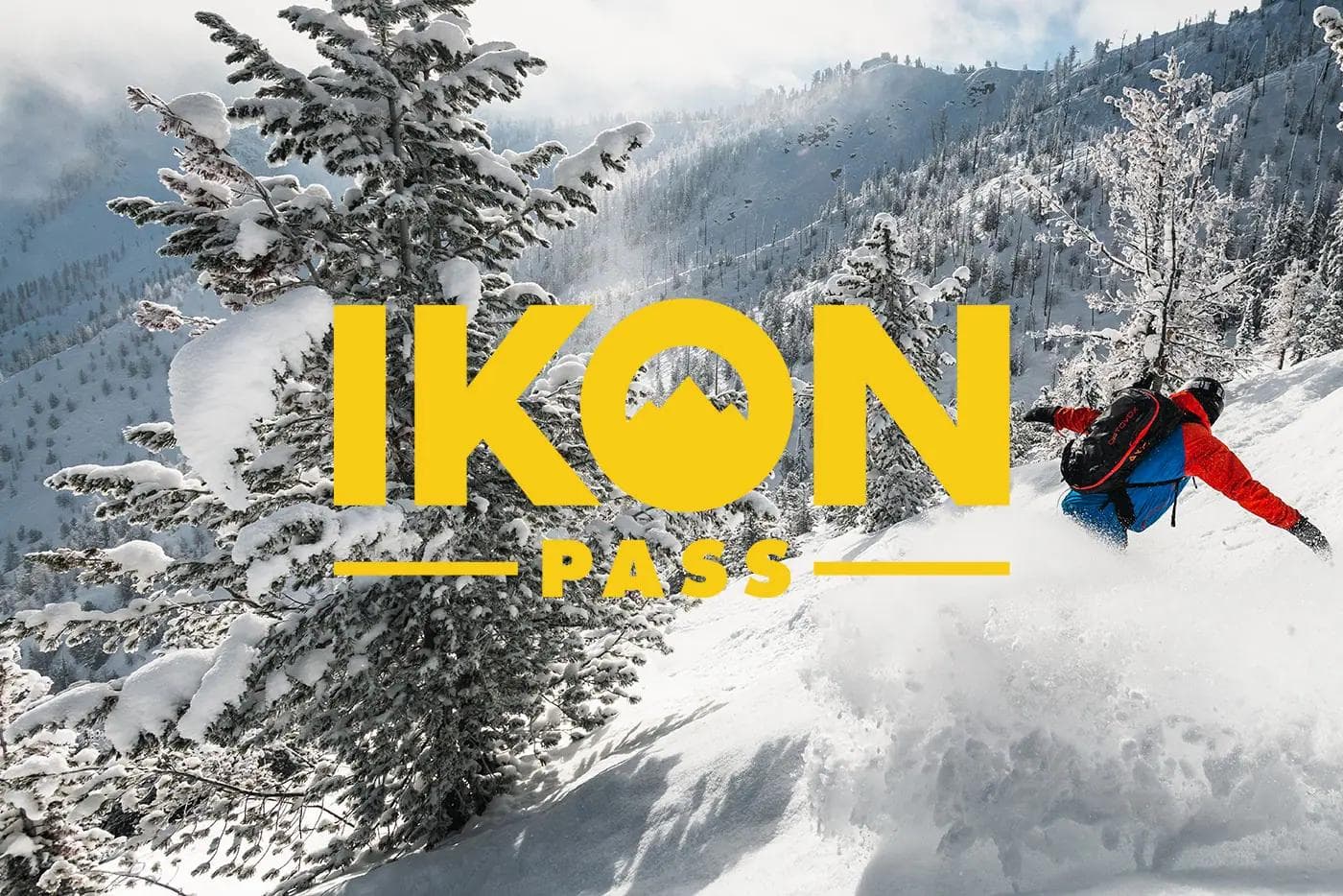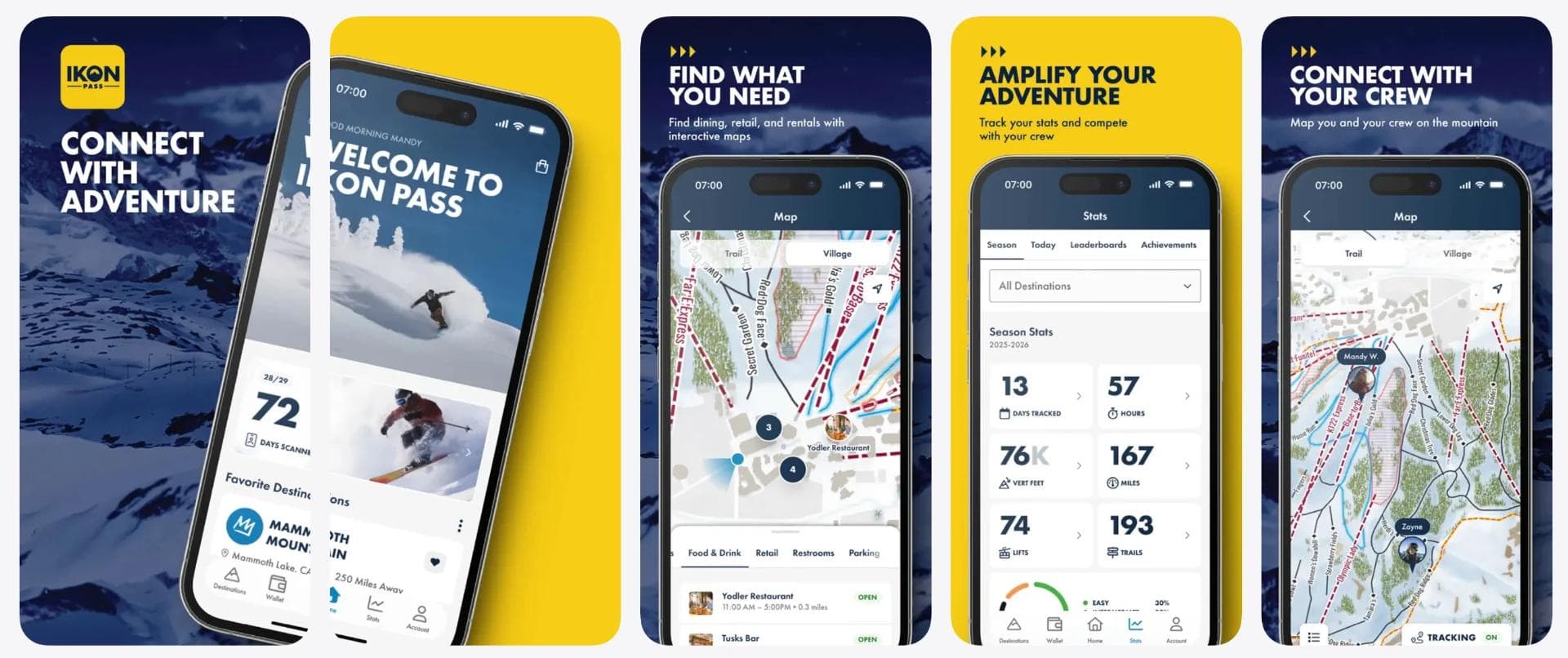
Ikon Pass App Consolidation Forces Resort-Specific App Users to Switch
Published Date:
Ikon Pass Consolidates Resort Apps Into Single Platform
Alterra Mountain Company has pushed through a significant app consolidation ahead of the 2025-26 season, forcing users at 14 resorts to abandon their existing resort-specific apps in favour of the unified Ikon Pass platform. The move affects skiers and riders at major resorts including Winter Park, Palisades Tahoe, Mammoth Mountain, and Crystal Mountain, among others.
Whilst Alterra frames this as an "elevated app experience", the reality is more pragmatic: it's a corporate efficiency play that simplifies their technology infrastructure whilst pushing users toward a pass-centric ecosystem. The company announced the changes on 4 November 2025, giving users roughly a month before most North American resorts begin operations.
The timing raises questions. Resort-specific apps have historically provided detailed local information and fostered individual resort identity—something the mega-pass era has steadily eroded. Now, that last digital connection to specific mountains disappears into a one-size-fits-all platform serving "70+ global destinations".

The updated app introduces location-based customisation that automatically surfaces information for whichever resort you're visiting. According to Erin Vorhies, Vice President of Digital Growth & Engagement at Alterra, the platform offers "personalized messages, stats, weather, and webcams" alongside a new interactive map and integrated payment system.
In theory, this should streamline the experience for pass holders who ski multiple resorts—the core Ikon demographic. Rather than juggling separate apps for Steamboat, Deer Valley, and Solitude, you've got one platform that supposedly adapts to your location. The integrated payment system could genuinely improve the notoriously clunky on-mountain purchasing experience, assuming it works as advertised.
But here's what Alterra isn't saying: this consolidation eliminates choice. If you primarily ski one resort and preferred its dedicated app interface, too bad. If you're a local at Sugarbush or Tremblant who never bought an Ikon Pass but used the resort app for conditions and updates, you're now being herded into a pass-branded platform whether you like it or not.
The affected resorts span both coasts and Canada: Winter Park, Steamboat, Deer Valley, Solitude, Mammoth, June Mountain, Big Bear, Palisades Tahoe, Crystal Mountain, Snowshoe, Sugarbush, Stratton, Blue Mountain, and Tremblant. That's a substantial chunk of Alterra's portfolio, though notably not all of it. The absence of resorts like Revelstoke, Arapahoe Basin, and others suggests either phased rollout or varying technology systems still in play.
This app consolidation reflects broader consolidation trends across the ski industry. As corporate ownership groups absorb more resorts, individual mountain identity gets subsumed into pass-holder ecosystems. Your relationship isn't with Steamboat or Palisades anymore—it's with Ikon.
From a pure functionality standpoint, a well-executed unified app could legitimately improve the multi-resort experience. The previous approach of maintaining separate technology stacks for each resort was inefficient and often resulted in inconsistent quality. If Alterra has actually built something functional (a significant "if" in ski industry tech), pass holders who bounce between resorts should benefit.
The real test comes when resorts start spinning lifts. App consolidations in other industries have a mixed track record—initial rollouts often struggle with bugs, lost features, and user frustration as people adjust to new interfaces. Anyone who remembers various airline or banking app mergers knows the pattern.
For non-pass-holders who simply want local mountain information, this shift is less convenient. Many resort apps served broader audiences than just pass holders, providing accessible conditions updates and webcams for day ticket buyers and locals. Forcing everyone into a pass-branded platform is a subtle but deliberate nudge toward the pass-holder ecosystem.
The app is free and available globally through standard app stores. Whether it's actually an improvement or just corporate streamlining dressed up as innovation will become clear once the season properly kicks off across North America and beyond.


